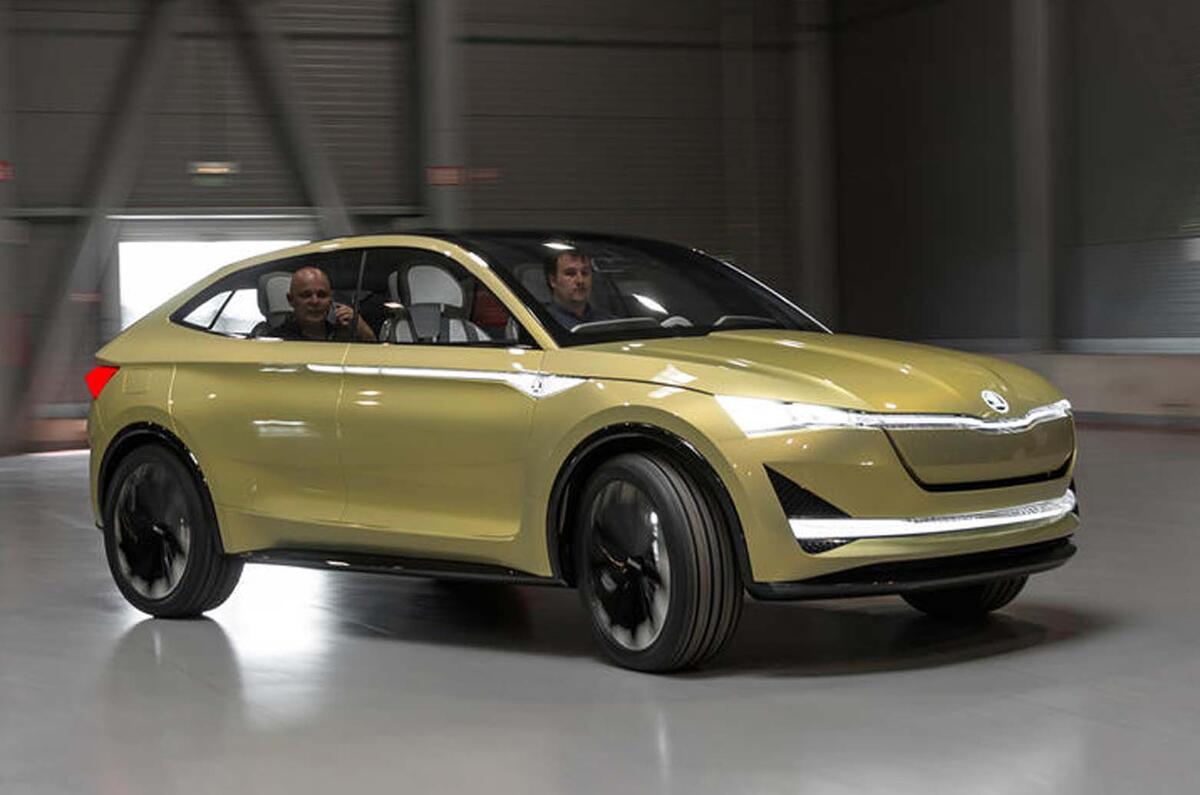Skoda will launch a vRS performance version of its upcoming electric SUV in 2022, likely badged eRS.
Following the launch of the standalone zero-emissions model late in 2020, as previewed in the Vision E concept, a hot version will be added to the line-up, Skoda’s sales and marketing chief Alain Favey has confirmed.
“There will be a vRS version of our future electric car,” he said. “It will be more about styling and experience, and not necessarily performance."
237bhp Skoda Kodiaq vRS confirmed with 2.0 bi-turbo diesel
Talking more broadly about the vRS performance brand, Favey said: “Customers like the sporty experience without [the car] being a flashy sports car. The most powerful vRS is 245bhp, so it’s about the look and the sporty driving of the car.”
Currently, the only vRS model on sale is the Octavia. However, a Kodiaq vRS will be launched later this year.
The Fabia vRS, a model which previously existed between 2010 and 2014, could also be re-introduced on the next generation of the supermini, which won’t arrive until the next decade. Favey said he believes there is a market for a vRS variant but nothing is yet decided. “The next-generation Fabia will come after 2020 and we are working on different options," he said. "I think there is a market for a vRS.”
Last year, Autocar reported a next-generation Skoda Fabia vRS is likely to be hybrid. “For the next generation of Fabia, there could be an alternative. We could look at the opportunities a bit differently,” boss Bernhard Maier said at the time. Asked if this meant electrification, he replied: “That would make sense, yes.”
Ahead of the arrival of a hot electric SUV, Skoda is readying for the launch of the standard model in 2020.
Before that, the Czech car maker will launch the electric Citigo-e, a sibling of the Volkswagen e-up and future Seat eMii. However, Favey said the Citigo-e is largely to gain experience in electric cars, to make sure dealers and repairers are ready. “The real first step [into electric cars] will be with the [standalone SUV]," he said.
The car, based on the Vision E concept shown at last year’s Shanghai motor show, will use the Volkswagen Group’s electric-only MEB platform, which is being used across all of the company's brands.
Favey described the production version of the Vision E as ”very attractive” and said that the car should “not scare current Skoda owners, but also appeal to people that aren’t Skoda owners”. The Vision E “gives a very good idea of what the EV will look like,” he added.
Inside, the car will adopt the 'floating' screen seen in the Vision X concept earlier this year. While the Vision X will make production next year as the smallest SUV in Skoda’s line-up, this screen will be saved for Skoda’s electric models, starting with the SUV, explained Favey.
While Volkswagen is understood to be offering a number of battery capacities with different mile ranges, Favey said the electric SUV, which is between the Karoq and Kodiaq in terms of size, will offer one battery that will be capable of at least 300 miles of range. “If it doesn’t have 300 miles, it shouldn’t come to market,” Favey said.




Add your comment